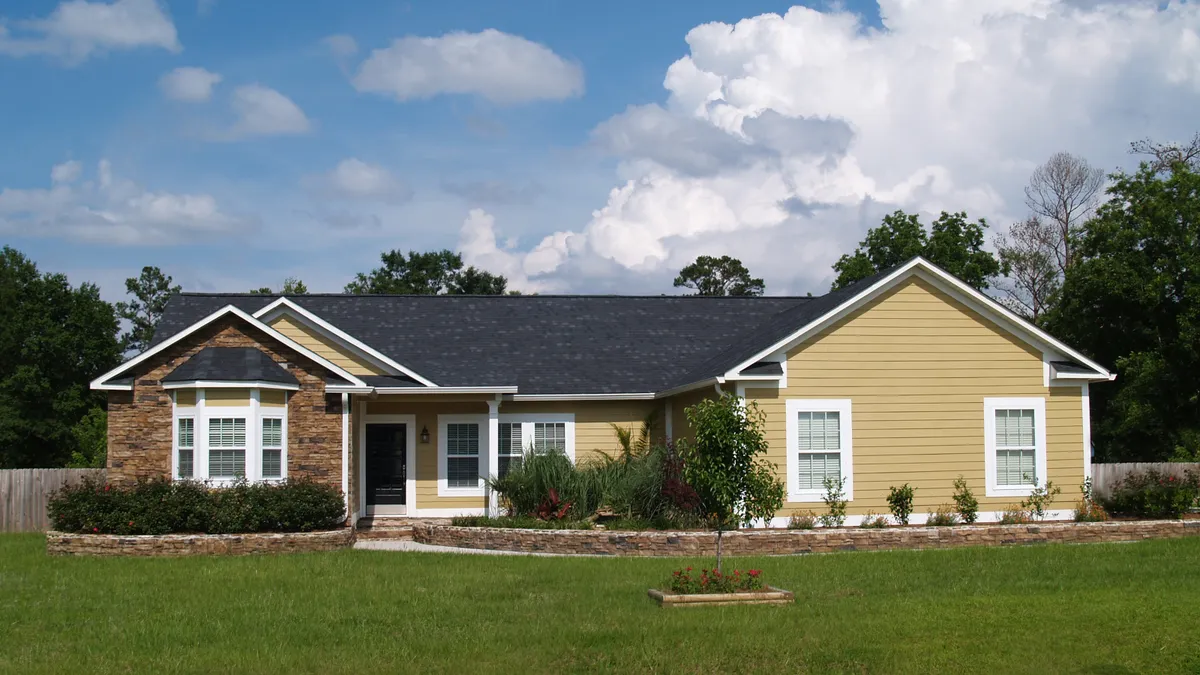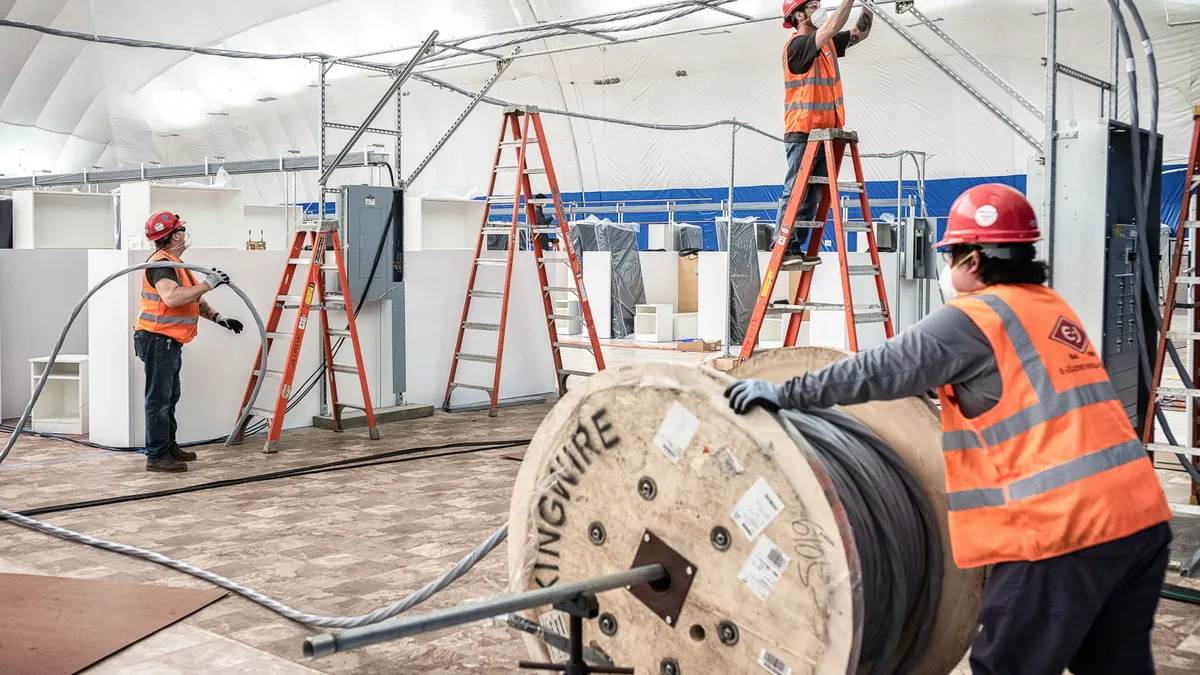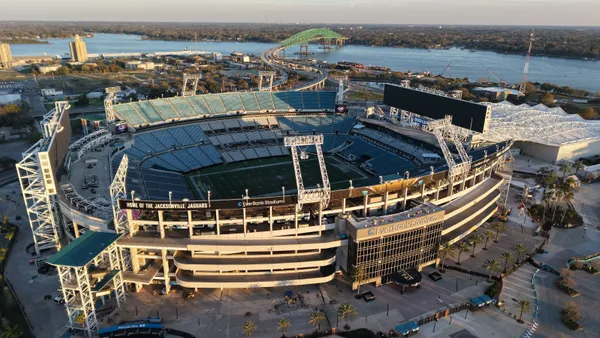Dive Brief:
-
Housing affordability in the U.S. hit its lowest point since the fourth quarter of 2008 as wage growth fails to keep pace with rising home prices, according to the fourth quarter 2016 Home Affordability Index from RealtyTrac.
-
Based on the latest data from ATTOM Data Solutions and the Bureau of Labor Statistics, RealtyTrac reported that the index fell to 103 in the fourth quarter from 108 in the prior quarter and was also down from 116 a year earlier.
- Unless the U.S. sees a resurgence in wage growth, housing affordability is likely to regress further next year amid expectations of more interest rate increases.
Dive Insight:
The issue of housing affordability has plagued the market since the recession amid an improvement in economic conditions, tighter lending standards and low inventory levels.
These factors have combined to push home prices back up to pre-crisis levels, with a recent survey from Zillow showing that home values jumped up 6.5% year over year to $192,500 in November, their fastest annual pace since 2006.
It comes as the U.S. faces an increasing shortage of homes in many markets as housing starts continue to languish. The Commerce Department reported earlier this month that single-family starts fell 4.1% from October to a seasonally adjusted annual rate of 863,000, albeit 5.3% ahead of a year ago.
The gap between wage growth and rising home values as demand outstrips supply was highlighted in the RealtyTrac report, with the ATTOM Data Solutions figures showing that the national median home price has shot up 60% since hitting a bottom in the first quarter of 2012, while average weekly wages have edged up only 1% in that time.
Home prices are also expected to continue rising heading into the new year. CoreLogic recently forecast home prices to climb 4.6% from October 2016 to October 2017.
Although interest rates are still at relatively lows levels, concerns are now mounting that further hikes in mortgage rates could also impact affordability. Government-backed lender Freddie Mac said last week that a 30-year fixed-rate mortgage averaged 4.16% for the week ending Dec. 15, a rise of 4.13% from the week before and 3.97% the same period a year earlier.
These concerns have been compounded following a decision by the Federal Reserve earlier this month to hike interest rates by 25 basis points to a range of 0.50% to 0.75%.
For more housing news, sign up for our daily residential construction newsletter.














